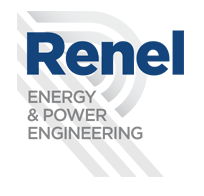Building energy efficiency upgrades refer to a set of interventions made to a building with the aim of reducing its energy consumption for heating, cooling, and lighting. Every building has room for improvement, whether it is under construction or completed. Especially in buildings that have been built for decades, energy upgrading, even with small interventions and improvements, is necessary because of the huge losses they will certainly have.
This is achieved through:
Thermal insulation: Applying insulating materials to the walls, roof, floor, and windows of the building, reducing heat loss in winter and coolness in summer.
Window replacement: Installation of modern windows with thermal break and energy-efficient glazing, which offer better thermal and sound insulation.
Upgrading heating and cooling systems: Installation of more efficient boilers, heat pumps, or other heating and cooling systems with lower emissions and energy consumption.
Installation of renewable energy systems: Placement of photovoltaic systems, solar water heaters, or other renewable energy systems to generate energy from the sun.
Lighting improvements: Replacing traditional lamps with LED lamps, which are more efficient and have a longer lifespan.
Building energy efficiency upgrades offer multiple benefits for the environment, such as:
Reduced pollutant emissions: Reduced energy consumption leads to a corresponding reduction in greenhouse gas emissions, contributing to combating climate change.
Utilization of renewable energy sources: The installation of renewable energy systems contributes to the increase of energy production from renewable sources, reducing dependence on fossil fuels.
Protection of natural resources: Energy conservation leads to less consumption of resources such as oil, natural gas, and coal, contributing to the protection of the natural environment.
Improved air quality: Reduced pollutant emissions improve air quality, benefiting human health.
In addition to environmental benefits, building energy efficiency upgrades also offer economic benefits, such as:
Reduced energy bills: Energy savings lead to a direct reduction in electricity and heating bills.
Increased property value: An energy-efficient building has a higher value in the real estate market.
Overall, building energy efficiency upgrades are a necessary investment for protecting the environment, stimulating the economy, and improving quality of life.




